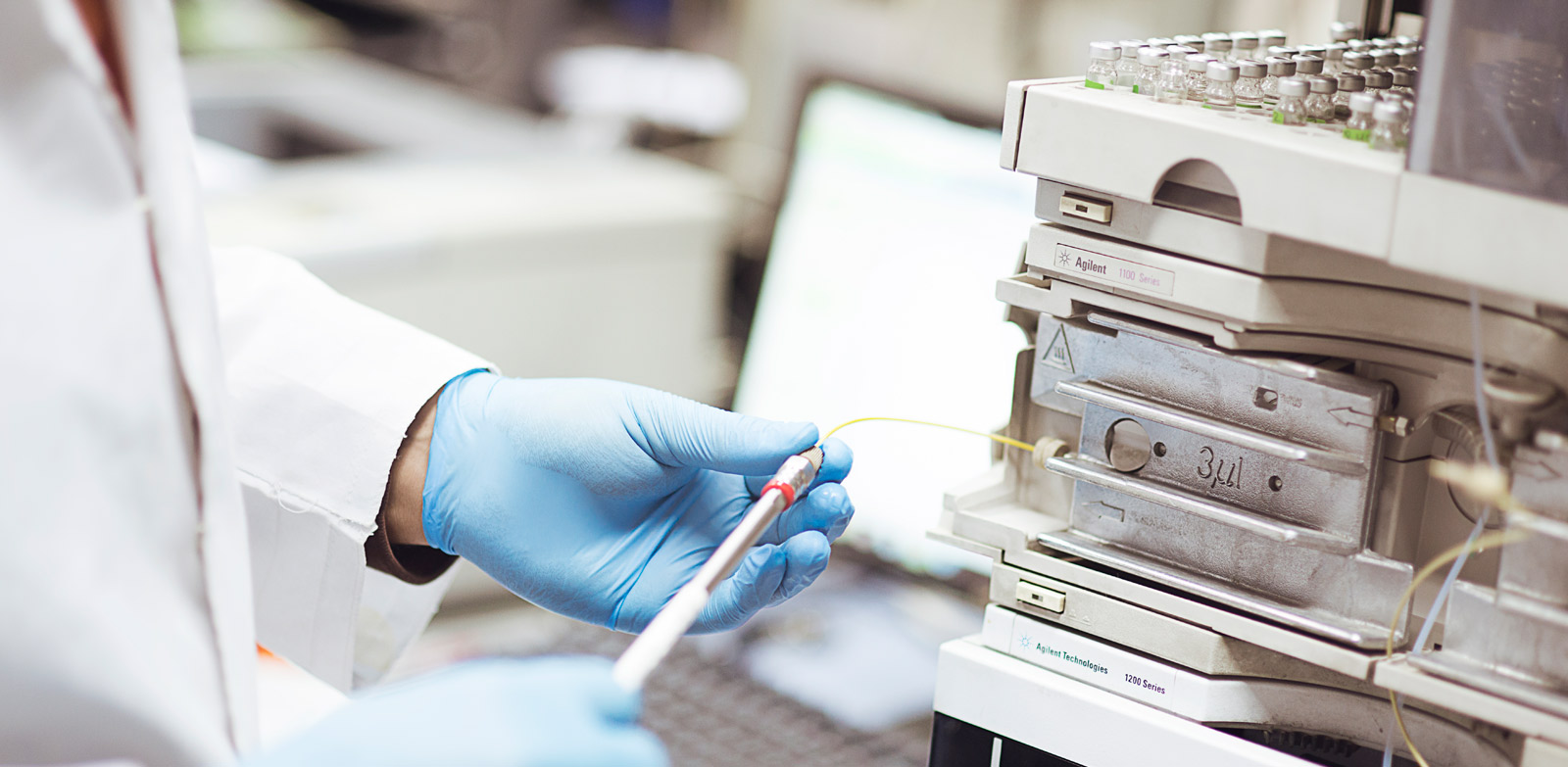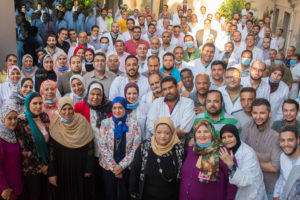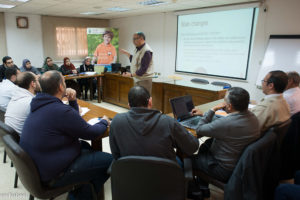Food Packaging (FP)
Food packaging is crucial in the sale of food, as it ensures that the quality and freshness of food are kept intact until it reaches the end user. A wide range of materials are used for packaging and come into contact with food during the entire production process, including the process of measuring, wrapping, storage, transportation, and serving (including plastics, recycled plastics, cardboard, silicones, inks, rubber, metals, glass containers, ceramic objects, pots and pans, plates, bowls, and wooden materials). These materials can leach hazardous chemicals when subjected to various conditions in supply chains.
According to national and international regulatory requirements, FCMs must be analyzed to prevent the risk of contamination and ensure compliance with health and safety requirements.


Material evaluation in foodstuff contact
Evaluation of Contact Materials in Foodstuff
FCM testing can be applied to a wide range of products, including:
• Food packaging materials including raw materials.
• Food containers and kitchen/cooking utensils.
• Tableware.
• Household food processing appliances.
• Food production and processing machinery
QCAP Laboratory provides the following testing services :
QCAP provides accredited testing services to assess the safety of the materials and articles intended to come into contact with food.
- Overall Migration (OM): examining all substances that can be transferred from food contact material into food, and examining the inertness of food contact materials.
The QCAP uses different Food Simulants and Migration Cells to determine the Overall Migration Limit (OML) according to the EN 1186-x standard series. QCAP test scope for OM includes the following.
- OM of Polymeric coatings on paper and boards.
- OM of Polymeric coatings on metal substrates.
- OM of fatty foodstuffs (including Olive Oil by Total Immersion).
- OM of Article Filling.


Material evaluation in foodstuff contact
2. Specific Migrations of Substances (SM): examines the presence of substances that can potentially migrate from food contact material into food items, according to EN 13130-x standards. QCAP test scope for SM includes the following.
- SM of bisphenol-A in aqueous food extract.
- SM of Phthalates in plastics, paper, and boards.
- SM of Formaldehyde in the food simulants.
- SM of Poly Aromatic Hydrocarbons (PAHs)
- SM of Heavy Metals.
• SM of Primary Aromatic Amines (PAAs) is in progress.
• SM of Mineral Oils (MOSH and MOAH) is in progress.
• Tableware.
• Household food processing appliances.
• Food production and processing machinery
3. Non-Intentionally Added Substances (NIAS): chemicals that are present in an FCM or Food Contact Article (FCA) but have not been added for a technical reason during the production process.
NIAS have various sources (such as isomers, impurities, reaction products, and breakdown products of the ingredients), as well as possible contaminants from the manufacturing process (such as recycled materials) or indirect food contact sources (such as printing inks, external coatings, adhesives, and secondary packaging).
QCAP has wide experience in the identification and quantification of NIAS in a range of material types and their migration into food simulants and foodstuffs.
4. Microbiological Testing of Food Packaging: Determination of microbial contamination levels in the final consumer packaging products.
5. Declaration of Compliance: QCAP helps the manufacturer of plastic food contact material to self-verify compliance with the relevant regulations.

Staff
Prof. Dr. Yasser Nabil – Head




